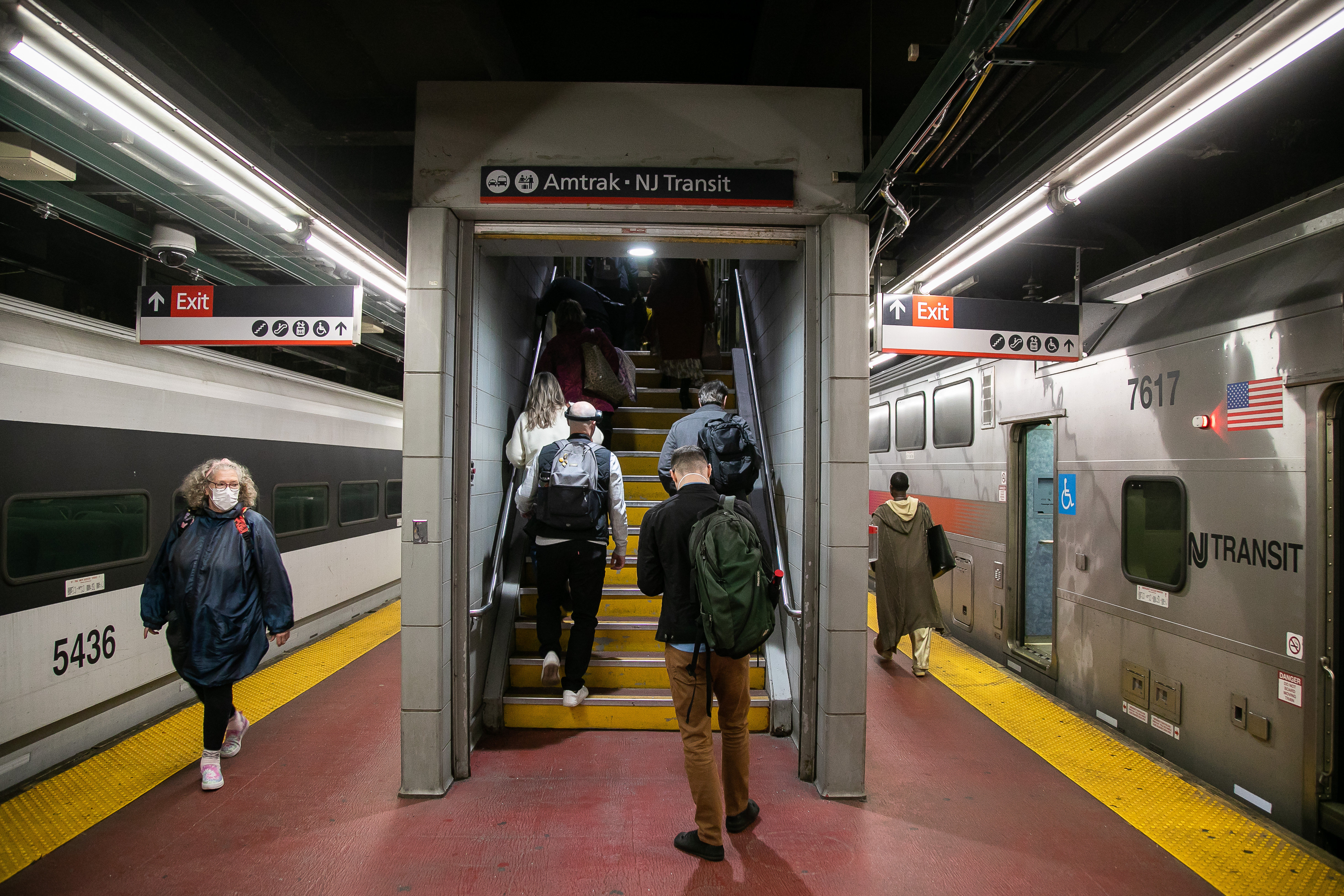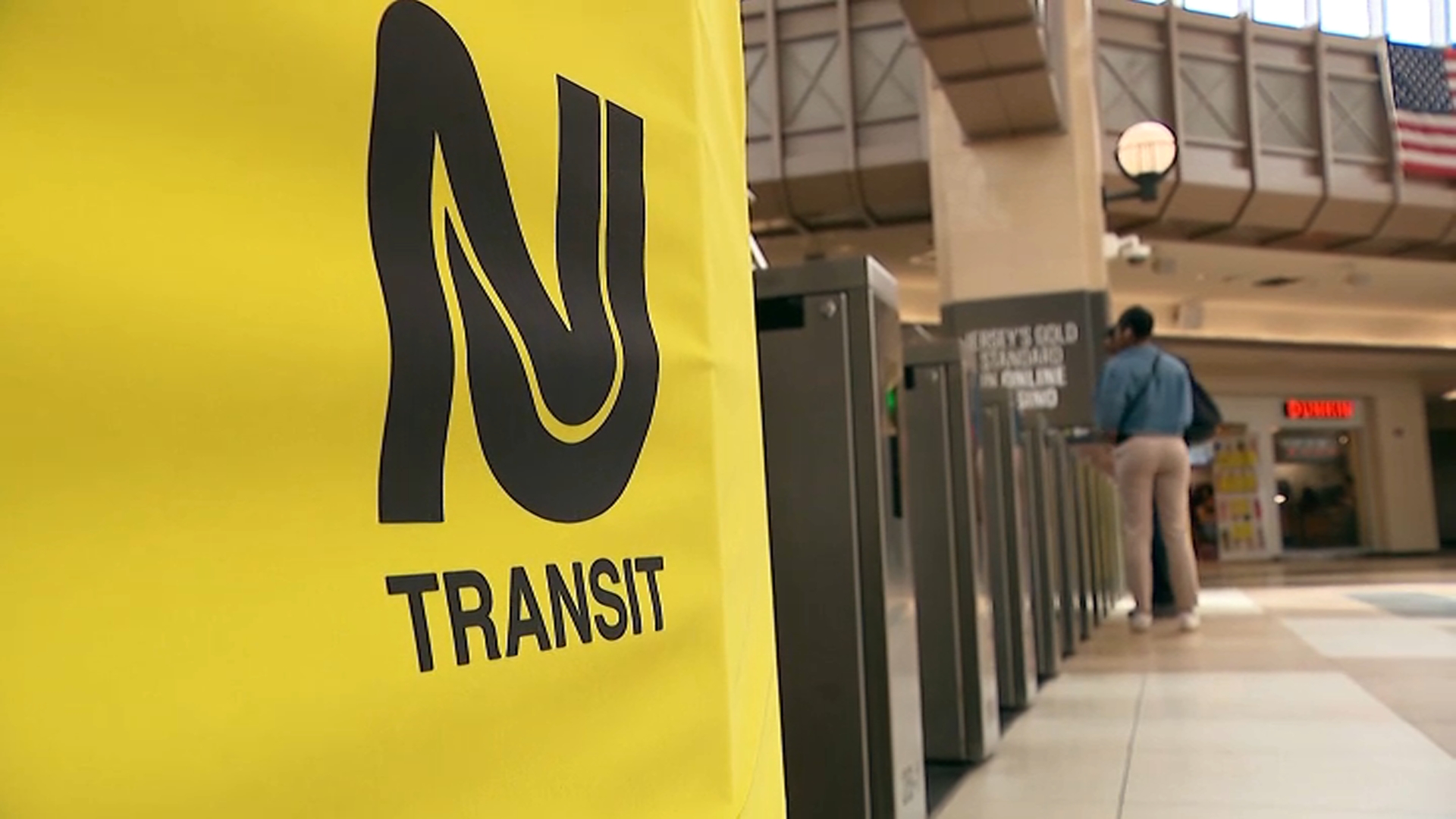NJ Transit Train Delays Ease: Commuters Breathe a Sigh
NJ Transit & Amtrak Delays Ease: Tunnel Breakdown Relief
Introduction: A Commuter's Sigh of Relief
Ah, Monday morning. The bane of many a commuter's existence. And when you add a train breakdown to the mix, well, let's just say it's a recipe for a stressful start to the week. But there's good news! After facing significant delays due to a disabled train in one of the Hudson River Tunnels, NJ Transit and Amtrak passengers are finally seeing things start to normalize. Let’s dive into what happened and how it’s impacting your commute.
The Initial Breakdown and Its Impact
The trouble began early Monday morning when a train experienced a mechanical failure within the confines of the Hudson River Tunnels. This critical artery connects New Jersey to New York City, and a disruption here sends ripples across the entire transportation network. Remember that feeling of being stuck in traffic because of a single stalled car? It’s kind of like that, but on a much grander scale. Emergency management officials in New York City were quick to issue warnings, advising commuters to brace themselves for additional travel time.
NJ Transit's Announcement and Initial Delays
NJ Transit was equally prompt in alerting passengers to the situation. Through their official Twitter account, they announced that rail service in and out of Penn Station New York was subject to delays of up to 45 minutes. That’s a significant chunk of time, especially when you're trying to get to work! Imagine the collective groan echoing through New Jersey and New York as people read that tweet.
The Tweet Heard 'Round the Commute
The tweet stated: "Due to a disabled train in one of the Hudson River Tunnels, NJ TRANSIT rail service is subject to up to 45-minute delays into and out of Penn Station New York. NJ TRANSIT rail tickets and passes are being cross honored by PATH at Newark Penn Station, Hoboken and 33rd Street, NY." This was crucial information for those affected, offering a small sliver of hope in the form of cross-honoring with PATH.
PATH Cross-Honoring: A Silver Lining
Speaking of PATH, let's talk about that cross-honoring agreement. When NJ Transit experiences major disruptions, they often allow passengers to use their tickets and passes on the Port Authority Trans-Hudson (PATH) trains. This provides an alternative route into Manhattan, mitigating some of the impact of the delays. Think of it as a detour on the highway – not ideal, but better than being completely stuck. The PATH stations included were Newark Penn Station, Hoboken and 33rd Street, NY.
Easing Delays: A Gradual Improvement
Fortunately, the situation began to improve as the morning progressed. By around 11 a.m., NJ Transit reported that delays had ebbed to approximately 15 minutes. That's still a delay, but a significant improvement from the initial 45-minute estimate. It’s like the light at the end of the tunnel – literally and figuratively.
Amtrak Passengers: Similar Challenges
It wasn't just NJ Transit passengers who were affected. Amtrak, which also utilizes the Hudson River Tunnels, experienced similar delays and cancellations. This meant that travelers heading to or from destinations beyond New Jersey were also caught in the transportation snarl. Think of it as a domino effect – one disruption can impact a wide range of services.
The Hudson River Tunnels: A Critical Infrastructure
The Hudson River Tunnels themselves are a vital piece of infrastructure, carrying thousands of passengers between New Jersey and New York City every day. They’re old, they’re crowded, and they’re prone to problems. This incident highlights the urgent need for infrastructure improvements to ensure the reliability of the region's transportation network. It’s like relying on a car that’s past its prime – eventually, something’s going to break down.
Understanding the Root Cause
While the immediate cause was a disabled train, it's essential to understand that underlying factors contribute to these types of incidents. Aging infrastructure, increased ridership, and limited redundancy all play a role. Addressing these issues requires a comprehensive approach, including investment in new technologies and improved maintenance practices.
The Ripple Effect on the Region's Economy
Transportation disruptions have a significant impact on the region's economy. Delays can lead to lost productivity, missed appointments, and increased stress for commuters. Over time, these disruptions can erode confidence in the transportation system and discourage economic activity. It's like a clog in the arteries of a city – slowing everything down.
Future Infrastructure Improvements
The Gateway Program, a massive infrastructure project that aims to build a new rail tunnel under the Hudson River and rehabilitate the existing tunnels, is seen as a critical step towards addressing these challenges. However, the project has faced numerous delays and funding hurdles. Let’s hope these future improvements go through so that we don’t have to keep reading headlines like this.
The Gateway Project: A Long-Term Solution
The Gateway Program represents a long-term solution to the region's transportation woes. By increasing capacity and improving reliability, the program would reduce the likelihood of future disruptions and enhance the overall commuting experience. It's like building a new highway to alleviate traffic congestion on an existing one.
Commuter Strategies for Dealing with Delays
So, what can you do to cope with these inevitable delays? Here are a few tips:
- Stay informed: Follow NJ Transit and Amtrak on social media for real-time updates.
- Plan ahead: Check your route before you leave home to anticipate potential delays.
- Consider alternative routes: Explore options like PATH or bus service.
- Be patient: Delays are frustrating, but try to remain calm and composed.
- Bring a book or podcast: Distract yourself during the downtime.
NJ Transit's Response and Recovery Efforts
NJ Transit worked diligently to address the situation and restore service as quickly as possible. They deployed personnel to the affected area, coordinated with other agencies, and communicated updates to passengers. Their prompt response helped to minimize the impact of the disruption.
The Importance of Communication During Disruptions
Clear and timely communication is crucial during transportation disruptions. Passengers need to know what's happening, why it's happening, and what to expect. NJ Transit's use of social media and other communication channels helped to keep commuters informed and manage expectations. It’s like having a trusted navigator guiding you through a storm.
A Call for Continued Investment in Transportation
This incident serves as a reminder of the importance of continued investment in transportation infrastructure. Our region's economy depends on a reliable and efficient transportation network. By prioritizing infrastructure improvements, we can reduce the likelihood of future disruptions and ensure a smooth commute for everyone. It's like investing in the foundation of a house – it's essential for its long-term stability.
Conclusion: Moving Forward After the Delay
While the train breakdown caused a significant headache for NJ Transit and Amtrak passengers, the situation has improved, with delays gradually easing. The incident underscores the vulnerability of the Hudson River Tunnels and the need for ongoing investment in infrastructure. By staying informed, planning ahead, and supporting infrastructure improvements, we can all contribute to a more reliable and efficient transportation system. So, take a deep breath, NJ and NY Commuters! The worst is behind us (hopefully until next time!).
Frequently Asked Questions
- Why are the Hudson River Tunnels so prone to delays?
The Hudson River Tunnels are over 100 years old and suffer from age-related wear and tear. Increased ridership and limited redundancy further exacerbate the problem.
- What is NJ Transit doing to prevent future breakdowns?
NJ Transit is investing in maintenance and upgrades to its rail infrastructure, including the Hudson River Tunnels. They are also exploring new technologies to improve reliability.
- How can I find out about delays before I leave for my commute?
Follow NJ Transit and Amtrak on social media, check their websites, or use transportation apps like Citymapper for real-time updates.
- What are my options if my train is severely delayed?
Depending on the severity of the delay, you may be able to use your ticket on PATH trains, take a bus, or explore other alternative transportation options.
- How will the Gateway Program help prevent future delays?
The Gateway Program will add a new rail tunnel under the Hudson River and rehabilitate the existing tunnels, increasing capacity and improving reliability, thereby reducing the likelihood of future disruptions.

